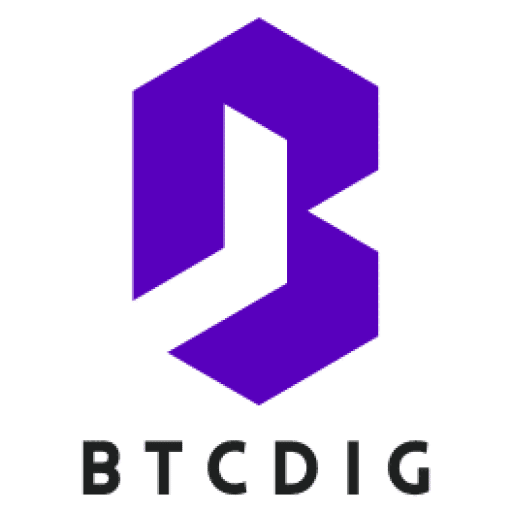Modern society has seen an increased awareness regarding the importance of not just eating to satisfy hunger but consuming the right types and amounts of food for optimal health. The fields of nutrition and health have evolved significantly over the years. They are no longer solely about addressing issues related to disease and malnutrition. There is a growing focus on preventative strategies and enhancing human performance through personalized nutrition. This article explores the intersection of bioinformatics and nutrition and how this synergy can lead to more personalized dietary strategies and better health outcomes.
The Concept of Personalized Nutrition
In this era of information and technology, the field of nutrition has also undergone notable transformations. In the past, nutritional advice was often based on broad dietary guidelines, derived from data on population averages. However, recent advancements have shifted this paradigm towards a more individual-centric approach, known as personalized nutrition.
A lire également : What Nutritional Strategies Can Enhance Cognitive Performance in Competitive Gamers?
Personalized nutrition is based on the understanding that each person has unique dietary needs, influenced by numerous factors including genetic makeup, gut microbiome, lifestyle, and environmental factors. The aim of personalized nutrition is to provide dietary recommendations tailored to an individual’s unique needs and conditions, promoting optimal health and preventing disease.
Role of Bioinformatics in Personalized Nutrition
Bioinformatics is an interdisciplinary field that combines biology, computer science, and information technology. It focuses on developing methods and software tools for understanding biological data. In the context of nutrition, bioinformatics can help analyze large data sets related to an individual’s genome, proteome, metabolome, and other ‘omics’ technologies. This helps to provide insights into the individual’s metabolic characteristics, nutritional needs, and potential risks for certain diseases.
Avez-vous vu cela : How Can Breathwork Practitioners Mitigate Symptoms of Anxiety Disorders?
This emerging field of nutrigenomics, which involves the interaction of nutrition and gene expression, is heavily reliant on bioinformatics. For example, a bioinformatic approach can help identify genetic variants that may influence how individuals respond to certain nutrients, thus enabling more precise and personalized dietary advice.
Nutrigenomics: A Key to Personalized Nutrition
Nutrigenomics is a sub-discipline of nutritional genomics that focuses on understanding the relationship between what we eat and our health based on our genes. It seeks to understand how the food we consume influences our health by interacting with our genes. The goal of nutrigenomics is to provide a genetic-based diet to prevent or treat diseases.
A nutrigenomics approach to personalized nutrition involves using bioinformatics tools to analyze genomic data. This data can reveal information about an individual’s genetic susceptibility to certain diseases or sensitivity to specific nutrients, which can then be used to provide personalized dietary recommendations.
For instance, individuals carrying certain variants of genes related to lipid metabolism may be more susceptible to high cholesterol levels when consuming a diet high in saturated fats. With this information, tailored dietary advice can be provided to limit the intake of saturated fats and promote heart health.
Accessing Nutritional Research Data
For bioinformatics and nutrigenomics to truly make a difference in personalized nutrition, researchers need access to a wide range of nutritional data. This is where online databases such as Crossref, PubMed, Google Scholar, and others play a crucial role.
These platforms provide a wealth of information on nutritional data and research studies that can be mined for insights. For example, by querying these databases, researchers can access studies related to the impact of a particular nutrient on health, the role of specific genetic variants in disease susceptibility, and much more.
The integration of such vast amounts of nutritional and genetic data by bioinformatic tools can significantly advance the field of personalized nutrition, providing more refined dietary advice for individuals.
The Future of Personalized Nutrition
As bioinformatics continues to evolve and become more sophisticated, its potential impact on personalized nutrition is immense. Through nutrigenomics, we can uncover an individual’s genetic predispositions and understand how they interact with various foods and nutrients.
As the future unfolds, expect to see a significant shift in how dietary advice is delivered. The one-size-fits-all approach will become a thing of the past, replaced by personalized, genetic-based nutritional recommendations. These recommendations will not only aim to prevent disease but also to optimize overall well-being by aligning dietary intake with individual genetic profiles.
In the age of bioinformatics and personalized nutrition, the adage "You are what you eat" may soon become, "You should eat based on who you are."
Precision Nutrition: The Intersection of Bioinformatics and Dietetics
Precision nutrition refers to the application of genomics, metabolomics, and other ‘omics’ technologies to tailor dietary interventions to an individual’s unique genetic and physiological profile. It aligns with the larger concept of personalized medicine, which seeks to customize healthcare – including prevention strategies and treatments – to individual needs.
Bioinformatics plays a crucial role in the era of precision nutrition. By harnessing the power of computational biology and information technology, bioinformatics can analyze vast datasets related to an individual’s genetic makeup, gut microbiota, metabolomics, among other parameters. This information is then used to provide personalized dietary recommendations.
For instance, bioinformatics can help identify how an individual’s gene expression varies in response to different dietary components. This can range from how quickly they metabolize certain fatty acids to how their gut microbiome changes in response to specific types of fiber.
Understanding these individual responses can help dietitians provide tailored nutrition interventions that can prevent or mitigate chronic diseases, enhance health outcomes, and improve the overall quality of life. Furthermore, this data can also be used in public health research to better understand population health trends and to develop more effective public health interventions.
Conclusion: The Role of Bioinformatics in Shaping the Future of Nutrition
In conclusion, the convergence of bioinformatics and personalized nutrition marks a significant shift in the field of dietetics. It offers an exciting opportunity to move away from the traditional "one-size-fits-all" dietary guidelines towards more individual-centric dietary strategies.
With the help of bioinformatics, researchers can access and analyze large-scale datasets from platforms such as Google Scholar, PubMed, and Crossref. This allows them to understand the complex interaction between diet, genes, and health at an unprecedented scale. In turn, dietitians can use this knowledge to provide precision nutrition interventions tailored to each individual’s unique needs.
However, it’s important to acknowledge that the transition to personalized nutrition won’t happen overnight. It requires a concerted effort from scientists, dietitians, healthcare professionals, and policymakers alike. Moreover, many challenges remain, including ethical considerations around genetic testing, data privacy, and the accessibility of personalized dietetics services.
Nonetheless, the potential benefits of personalized nutrition for improving public health and managing chronic diseases are immense. As we continue to advance in the field of bioinformatics, the possibilities for personalized, data-driven nutrition interventions will only continue to expand.
In the age of bioinformatics, the future of nutrition is personalized, precise, and promising. And as the saying goes, you really are – or rather, should eat – what you are.






